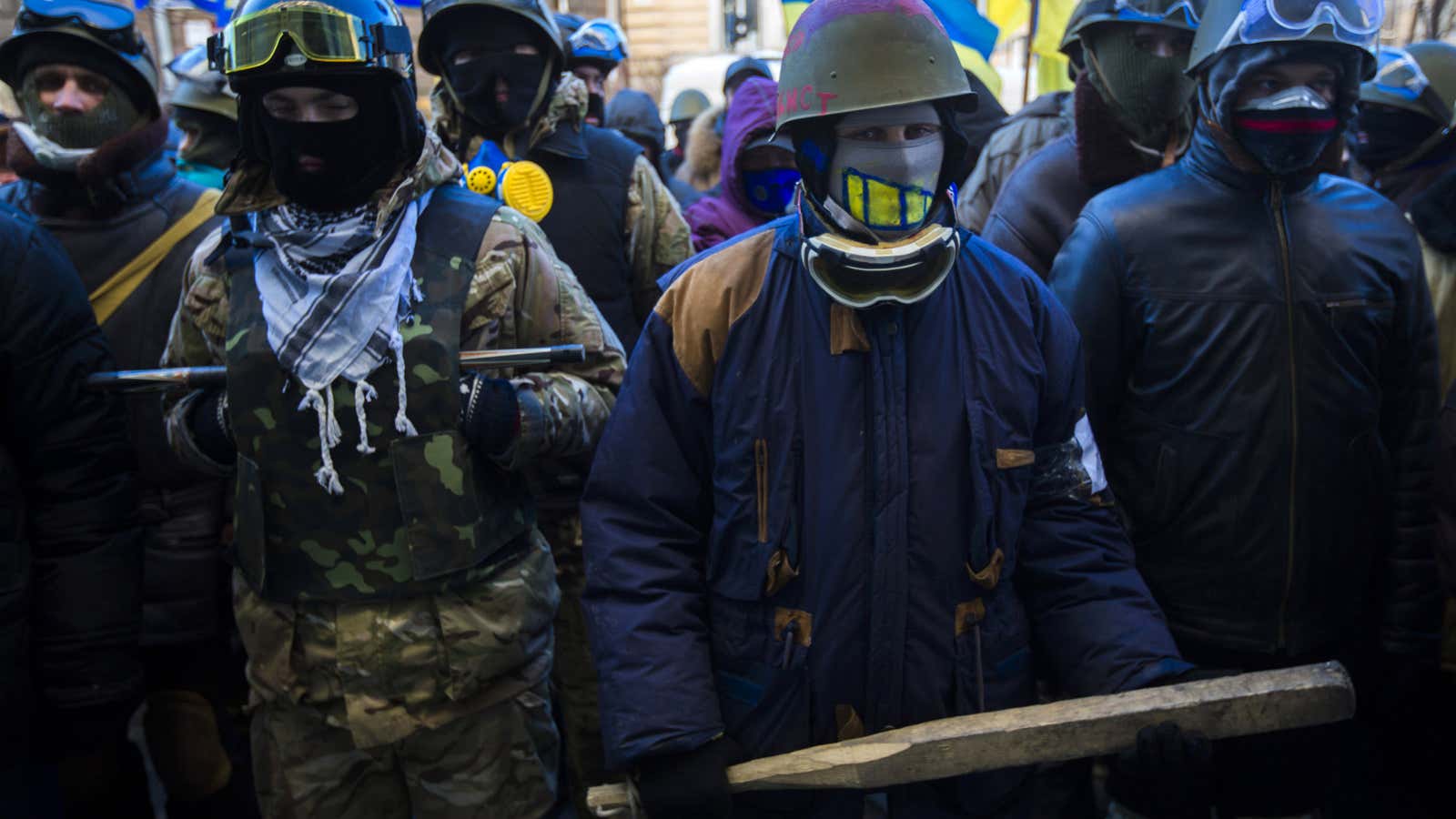This article has been updated.
Less than a week before the Sochi Winter Olympics, Russian president Vladimir Putin must decide how tough to get in order to keep Ukraine from quitting Moscow and allying formally with Europe.
Given the stakes to Russia’s—and his own—international prestige, the normally bullying Putin will want to refrain from open threats or other harsh measures as opposition protesters challenge the rule of pro-Moscow Ukrainian president Viktor Yanukovych. Until Feb. 23, when the Olympics conclude, the Russian leader will have to restrain himself. But he also will not easily surrender Ukraine, which Russia historically treats as a satellite nation.
The US is pushing moderation. “We would… say to our friends in Russia this does not have to be a zero (sum) game,” US secretary of state John Kerry said today in Berlin. “This is not something where Ukraine should become a proxy and trapped in some kind of larger ambition for Russia or the United States.”
But there is already some baring of teeth. Putin’s decision to withhold a $2 billion tranche of economic aid due today hit Ukraine’s currency hard, pushing the hryvnia to its lowest value against the dollar since the global financial crisis more than four years ago. Ukrainian goods are being held up at the Russian border.
More darkly, Dmytro Bulatov, a leader of Ukraine’s opposition protests, surfaced yesterday, eight days after vanishing without a trace, with part of an ear missing, his face a bloody mess, and punctures through his hands. ”They crucified me. They punctured my hands,” he said. “They cut off my ear, slashed my face. But I am alive, thank God.”
Bulatov said he does not know who the assailants were, beyond that they were Russian-speaking. (Note: See update below). Since at least a quarter of Ukrainians speak Russian as their native language, that doesn’t help much. The thugs could have been dispatched by political or business interests in Ukraine, Russia or even elsewhere. But their actions speak to the calculus on both sides as they seek triumph in the days and weeks ahead.
Update: Since this article was published, we have clarified that Bulatov in fact identified his assailants by their accents as Russians, from Russia. Unfortunately, that doesn’t do a great deal to narrow down the question of who sent them.
